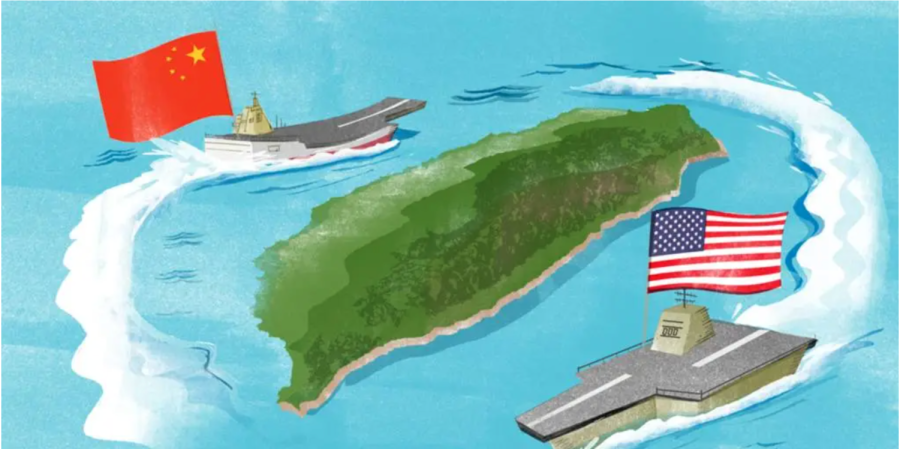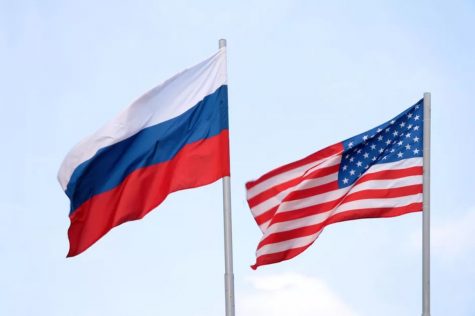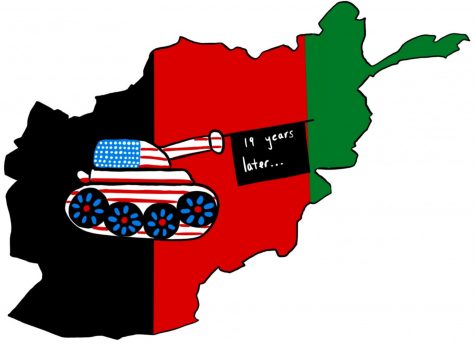Strategic Ambiguity in Taiwan: A Failed Foreign Policy Project
October 11, 2022
On August 2, 2022, House Speaker Nancy Pelosi visited the Republic of China, more commonly known as Taiwan. She became the most senior United States official to set foot on the island in 25 years. China responded by suspending imports of select Taiwanese products and heightening military exercises surrounding the island.
On September 2, 2022, the United States approved a $1.1 billion arms sale to Taiwan, supplying them with key military systems including radar systems to track adversarial missile strikes. China said that the deal would “severely jeopardize” the relationship between Washington and Beijing and that the United States would face “counter-measures” if the deal was not revoked.
Finally, on September 18, 2022, President Joe Biden was asked in an interview if US troops would defend the island in the event of a Chinese invasion. Biden responded with, “Yes, if in fact, there was an unprecedented attack,” effectively ending the United States 40 year long policy of strategic ambiguity towards the island.
What factors led to the quickly escalating tensions we see today? First, it will be necessary to understand the history of China-Taiwan relations and why China feels so strongly that Taiwan is actually a part of China. In 1949, Mao Zedong established the People’s Republic of China (PRC), while the former nationalist government fled to Taiwan under the new moniker the Republic of China (ROC). Since then, the PRC has stood by the “One China” policy, where they recognize only one sovereign state with the name China, with the PRC being its sole legitimate ruler. In 1979, President Jimmy Carter officially recognized China’s One China policy and severed normal ties with Taiwan. In 1982, however, with Ronald Reagan as president, the policy of strategic ambiguity began. Reagan continued ties with Taiwan but also normalized relations with China. He permitted China to purchase United States military equipment and reaffirmed the United States’ commitment to the One China policy.
Strategic ambiguity towards Taiwan has remained strong since then. The United States still does not recognize Taiwan as an official country. In fact, 13 countries do recognize Taiwan as an official country. Those countries have a combined population of less than 48 million, so the United States has clearly had a large impact on its allies, preventing them from adopting offensive stances toward China.
Strategic ambiguity towards Taiwan was an obvious choice for United States foreign policy. The United States would avoid tensions with China by not infringing on their claims in the region, while also dubiously maintaining a commitment to Taiwan. But how effective was this policy? Did it accomplish its intended goals of deterring Chinese aggression in Taiwan while also maintaining open relations with China in other areas?
No, definitely not. In an attempt to deter Chinese aggression in Taiwan, the United States has failed miserably. China has been ramping up aggressive military actions recently, flying fighter jets closer to and eventually through Taiwanese airspace. In addition to military assertiveness, China has stepped up sanctions on the island, blocking its access to essential goods. In an attempt to maintain across-the-board relations with China, as was the goal of the original proponents of strategic ambiguity, the United States has also failed, though that can be attributed to other factors besides Taiwan, including economic competition, tariffs on Chinese imports, and the ongoing trade war.
Strategic ambiguity failed, but that doesn’t mean that actions can not be taken to remedy existing tensions. Biden’s recent comments ensuring that the United States would step up to defend Taiwan in the event of an invasion are reassuring, but more steps need to be taken. The United States alone can not ensure the security of Taiwan. The United States should move toward adopting a practice of multilateralism toward Taiwan. The United States should rally its allies across the globe to defend Taiwan in the event of an invasion. This would send a strong signal, one that would ensure China backs down from increasingly aggressive activities in the region. The United States should leverage forums that it is already a part of, including the North Atlantic Treaty Organization (NATO), which is one of the strongest military alliances in the world. NATO would do well to extend partner nation status to Taiwan. This would ensure closer western ties which would enhance the deterrence effect but not go too far and extend Article V guarantees to Taiwan.
Defending Taiwan is not just a matter of beating China in one of the geopolitical hotspots of the modern era, Taiwan is also critical to American and European security. Taiwan supplies a large number of microchips and semiconductors critical to the functioning of the American economy. In addition, an invasion of Taiwan would be horrible for Europe because of its strong economic ties to the region. Taiwan provides critical technologies to the European economy, including developments in artificial intelligence, smart mobility, and green energy. The European Union also imported almost €40 billion in goods from Taiwan in 2021, and their partnership is only looking to expand in the future. The United States should use these ties as further reasons why multilateralism is the only viable approach to Taiwanese defense.
Critics would argue that sending too strong of a signal would only embolden a Chinese invasion of Taiwan. China would see its window of opportunity to reunify with Taiwan closing, and they would move in if the United States enhanced their deterrence posture in Taiwan. Their argument doesn’t assume that strategic ambiguity is failing right now because China is becoming more aggressive with Taiwan. Moving away from ambiguity may not be ideal, but it is the only choice we have because the current policy is failing. Multilateral approaches are the only choice for Taiwanese defense as we move forward into a new era of United States-China relations.
Sources Referenced:











